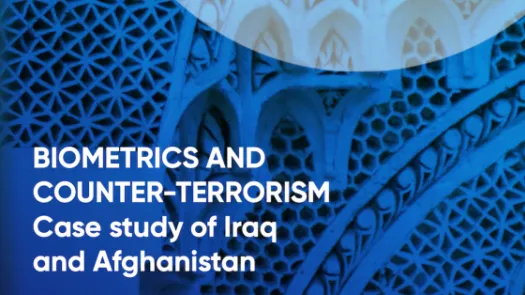Counter-terrorism global policies: law making behind closed doors

The global counter-terrorism agenda is driven by a group of powerful governments and industry with a vested political and economic interest in pushing for security solutions that increasingly rely on surveillance technologies at the expenses of human rights.
To facilitate the adoption of these measures, a plethora of bodies, groups and networks of governments and other interested private stakeholders develop norms, standards and ‘good practices’ which often end up becoming hard national laws or binding international obligations.
A welcome analysis of this trend is contained in the 2019 report on ‘soft law’ that the UN Special Rapporteur on counter-terrorism and human rights submitted to the UN General Assembly. Her conclusion is that these ‘soft law’ instruments tend to marginalise human rights: “In almost all of these arenas human rights are visibly side-lined or marginal to the norm production phase, as well as in oversight and implementation.” And yet these ‘soft laws’ – often developed by a small number of powerful states – are implemented across the globe, as either ‘hard’ laws and regulations or through “best practices”.
This is evident in one of the focuses of the Special Rapporteur’s analysis: the Financial Action Task Force (FATF). This is the body that sets the standards for counter-terrorism and anti-money-laundering in the financial sector. This is a sector that plays an essential and powerful role in our lives, yet is opaque to most people; add to this the secrecy surrounding financial crime and counter-terrorism, and it becomes particularly impenetrable.
As the Special Rapporteur found: “The FATF’s mandate contains no references to international law, international human rights law or international humanitarian law. However, laws and policies related to the standards set up by the FATF address issues such as criminalizing and prosecuting terrorist financing, targeted financial sanctions, tackling the risk of abuse of the not-for-profit sector for terrorist financing purposes and, thus engage human rights at multiple levels. Their impact is all the more significant as States generally adopt domestic laws and policies that enable them to implement FATF standards, thereby leading to national ‘hardening’ of these otherwise soft law standards. In the Special Rapporteur’s view, human rights implications linked to the development and implementation of these standards require sustained and in-depth attention.”
Significantly, the norms set up by FATF are “fast-tracked into binding legal standards”, as illustrated with the adoption of the UN Security Council resolution on terrorism financing (adopted in March 2019.) In the words of the UN Special Rapporteur, the resolution “specifically gold-plates the FATF and its norm production process by urging all States to implement the comprehensive international standards embodied in the revised Forty FATF recommendations on Combating Money Laundering, and the Financing of Terrorism and Proliferation and its interpretive notes. The FATF is an exclusive, non-transparent, State-created forum to which civil society and UN human rights entities have little or no consistent access. It has, in the financing terrorism context, become the short-cut to rule-setting, involving few constraints for States.”
Privacy International’s view on the implications of the FATF’s policies on the privacy of individuals are set out in our submission to the UN Special Rapporteur.
Surveillance of financial data is significantly intrusive of privacy, revealing not only people’s financial standing but also factors like family interactions, behaviours and habits, and the state of their health, including mental health.
The impact of FATF rules surrounding money laundering and terrorist financing extends far beyond the financial sector. In particular, meeting the FATF requirements on customer due diligence is a key driver of the introduction of biometric technologies and of government identification systems worldwide, which lead to privacy violation and social exclusion.
The Special Rapporteur argues that the FATF risks undermining human rights norms: the “FATF standards have been referenced and endorsed in documents produced by UN entities and organs, most recently - and prominently - by the Security Council.[1]Such endorsement should motivate the FATF to step up measures towards ensuring that its standards are designed and implemented in compliance with norms and standards adopted under the aegis of the UN, including international human rights law. Having UN-endorsed soft law standards fall short of these recognized binding norms would send a dangerous message that risks undermining globally recognized human rights norms.”
The development of ‘soft law’ such as the FATF recommendations in the name of countering terrorism has profound implications to individuals and societies. The fact that these norms are developed by organisation few have heard about, with no meaningful civil society participation and no consideration for human rights protection put into question the legitimacy of these norms. That is why the UN Security Council should not rush to endorse these ‘soft laws’ without assessing their implications for human rights. And it is also why FATF must explicitly include in its mandate the protection of human rights and must review its recommendations to ensure compliance with human rights, particularly in relation to the risks to privacy and to social exclusion.



